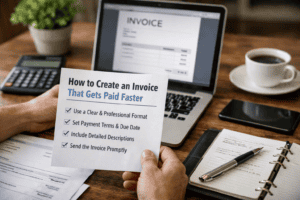Table of Contents
- Introduction to Taxation for Small Businesses
- Types of Taxes
- Understanding Corporation Tax
- Grasping Income Tax
- Value Added Tax (VAT) Essentials
- Demystifying Business Rates
- Employers’ National Insurance Contributions
- Managing Tax Compliance
- Record-Keeping for Tax Purposes
- Tax Planning Strategies
- Seeking Professional Advice
- Online Resources and Tools
- Understanding Tax Deadlines
- Essential Highlights
- Conclusion
Introduction to Taxation for Small Businesses
Understanding taxation is crucial for the success and legal operation of small businesses in the UK. Tax obligations vary based on the structure and earnings of the business. This guide aims to elucidate the various taxes that small businesses may encounter.

Types of Taxes
Small businesses in the UK are subject to several types of taxes, each serving a distinct purpose:
- Corporation Tax: This is a tax levied on the profits of limited companies. After deducting allowable expenses from the total revenue, businesses are required to pay Corporation Tax on the remaining profits.
- Income Tax: Sole traders and partners in a partnership are required to pay Income Tax on their business profits. The rate of tax depends on the income bracket they fall into.
- Value Added Tax (VAT): This is a consumption tax imposed on the value added to goods and services at each stage of production or distribution. Businesses with a taxable turnover exceeding £85,000 must register for and charge VAT.
- Business Rates: These are local taxes levied on the occupation of non-domestic property. The rate is set by the local council and varies depending on the location and usage of the property.
- Employers’ National Insurance: This is a contribution towards state benefits such as the State Pension and Jobseeker’s Allowance. Employers are required to make these contributions on behalf of their employees.
Understanding Corporation Tax
Corporation Tax is a significant tax that limited companies need to be cognizant of. It is levied on the profits generated from doing business as a company. The rate of Corporation Tax is set at 19% for the financial year 2022/2023. Companies are required to calculate their own tax liability and pay the tax without receiving a bill.
The process of managing Corporation Tax entails several steps:
- Registration: Companies must register for Corporation Tax within three months of starting to do business.
- Calculation: Businesses need to calculate their taxable profits by deducting allowable expenses from their total revenue.
- Filing: Companies must file a Corporation Tax Return, detailing their profits, tax calculations, and the tax due.
- Payment: The tax must be paid within nine months and one day after the end of the accounting period.
Grasping Income Tax
Income Tax is pertinent to sole traders and partners in a partnership. It is levied on the profits of the business, with different rates applicable based on the income levels. The basic rate is 20% for income over £12,570, the higher rate is 40% for income over £50,270, and the additional rate is 45% for income over £150,000.
Understanding the tax bands and ensuring accurate reporting of income can aid in effective tax management. It is advisable to seek professional advice to optimise tax efficiency.
Value Added Tax (VAT) Essentials
Value Added Tax is a significant aspect of taxation that impacts both businesses and consumers. It is levied at each stage of the production and distribution process. The standard rate of VAT is 20%, with reduced rates applicable to certain goods and services.
Businesses must be vigilant in managing VAT obligations, which include registration, charging correct rates, and filing VAT Returns. This will ensure compliance with the tax regulations and prevent any legal repercussions.
Demystifying Business Rates
Business Rates, also known as National Non-Domestic Rates (NNDR), are a form of local taxation levied on non-domestic properties. The liability for this tax arises when a business occupies a property for its operations. The amount payable depends on the ‘rateable value’ of the property, which is determined by the Valuation Office Agency (VOA).
Some key points regarding Business Rates include:
- Rateable Value: This is an estimate of the open market rental value of the property as of a specified date.
- Multiplier: The local council applies a multiplier to the rateable value to calculate the Business Rates due.
- Reliefs and Exemptions: Certain properties and businesses may be eligible for reliefs or exemptions, reducing the Business Rates payable.
It is prudent for business owners to understand the rateable value of their property, check the accuracy of the valuation, and be aware of any reliefs or exemptions available to them.
Employers’ National Insurance Contributions
Employers’ National Insurance Contributions (NICs) are a fundamental part of the UK’s tax system, contributing towards state benefits. Employers are obliged to make these contributions on behalf of their employees, based on the latter’s earnings.
Some crucial aspects of Employers’ National Insurance include:
- Contribution Rates: The rate of contributions varies depending on the employee’s earnings and categories of National Insurance.
- Payment: Employers need to calculate and pay the contributions monthly or quarterly, depending on the size of their payroll.
- Reporting: Accurate reporting to HM Revenue and Customs (HMRC) is essential to ensure compliance and avoid any penalties.
Managing Tax Compliance
Tax compliance is a critical aspect of operating a small business. It entails understanding the various tax obligations, ensuring accurate calculations, timely payments, and adhering to the reporting requirements stipulated by HMRC.
Employing the services of a professional accountant or tax advisor can provide invaluable assistance in navigating the complexities of tax compliance. They can offer guidance on tax planning, ensuring accuracy in tax calculations, and meeting the reporting obligations.
Record-Keeping for Tax Purposes
Maintaining accurate and comprehensive records is indispensable for managing tax obligations efficiently. Good record-keeping practices enable business owners to have a clear understanding of their financial position, facilitate accurate tax calculations, and ensure compliance with tax laws.
Some essential records to maintain include:
- Financial Statements: These provide a summary of the financial transactions and position of the business.
- Receipts and Invoices: Documenting all sales and purchases is crucial for accurate tax calculations.
- Payroll Records: These are necessary for managing employees’ salaries and ensuring correct calculation of Employers’ National Insurance Contributions.
Tax Planning Strategies
Tax planning is an essential component of financial management for small businesses. Effective tax planning strategies can minimise the tax liability, thereby maximising the resources available for business growth.
Here are some tax planning strategies:
- Utilising Allowances and Reliefs: Make full use of available allowances and reliefs such as the Annual Investment Allowance, which can provide immediate tax relief on qualifying asset purchases.
- Choosing the Right Business Structure: The tax implications vary between sole traders, partnerships, and limited companies. Selecting the most tax-efficient structure for your business is crucial.
- Claiming Expenses: Ensure to claim all allowable business expenses to reduce the taxable profits.
- Pension Contributions: Pension contributions can be a tax-efficient way to save for the future while reducing the current tax liability.
Seeking Professional Advice
Engaging the services of professional tax advisors or accountants is highly advisable for small business owners. These professionals possess the expertise to navigate the complex tax laws, ensuring that the business remains compliant while optimising the tax position. They can provide tailored advice based on the unique circumstances of the business, aiding in effective tax planning and management.
Online Resources and Tools
Numerous online resources and tools are available to assist small businesses in managing their tax obligations. The HM Revenue and Customs (HMRC) website offers a plethora of information, guides, and online services to aid in tax compliance. Various tax calculators and software solutions can also facilitate the accurate calculation and timely submission of tax returns.
Understanding Tax Deadlines
Adherence to tax deadlines is a vital aspect of tax compliance. Missing a deadline can result in penalties, thus understanding and planning for these deadlines is crucial. Some key tax deadlines include:
| Tax Type | Deadline |
|---|---|
| Corporation Tax | 9 months and 1 day after the end of the accounting period |
| Income Tax | 31 January following the end of the tax year |
| VAT Returns | 1 month and 7 days after the end of the VAT period |
| Employers’ National Insurance | Monthly or quarterly, depending on the size of the payroll |
Essential Highlights
Understanding and managing taxation is an imperative aspect of running a small business in the UK.
Here are the key takeaways from this guide:
- Various Taxes: Small businesses may be subject to several taxes including Corporation Tax, Income Tax, VAT, Business Rates, and Employers’ National Insurance.
- Compliance: Adhering to the tax laws, timely payment, and accurate reporting are crucial to avoid legal repercussions and penalties.
- Professional Advice: Engaging professional tax advisors or accountants can provide invaluable assistance in navigating the tax landscape, ensuring compliance, and optimising the tax position.
- Record-Keeping: Maintain accurate and comprehensive records to facilitate correct tax calculations and ensure adherence to tax laws.
- Tax Planning: Effective tax planning strategies can minimise the tax liability, thereby preserving resources for business growth.
- Online Resources: Utilise online resources such as the HMRC website and tax software solutions to aid in managing tax obligations.
- Understanding Deadlines: Being cognizant of the tax deadlines and planning for them is vital to ensure timely submissions and avoid penalties.
Conclusion
Taxation is an intrinsic part of operating a small business in the UK. A comprehensive understanding of the various taxes, compliance requirements, and available resources is indispensable for effective tax management. By employing diligent record-keeping practices, engaging professional advice, and leveraging online tools, small business owners can navigate the tax landscape proficiently. This guide aims to provide a foundational understanding of taxation for small businesses, aiding in the journey towards achieving tax compliance and financial success.
The complexity of the tax system necessitates a proactive approach to tax management. By fostering a better understanding of taxation, small business owners are well-positioned to make informed financial decisions, contributing to the sustainable growth and success of their ventures in the UK business environment.











